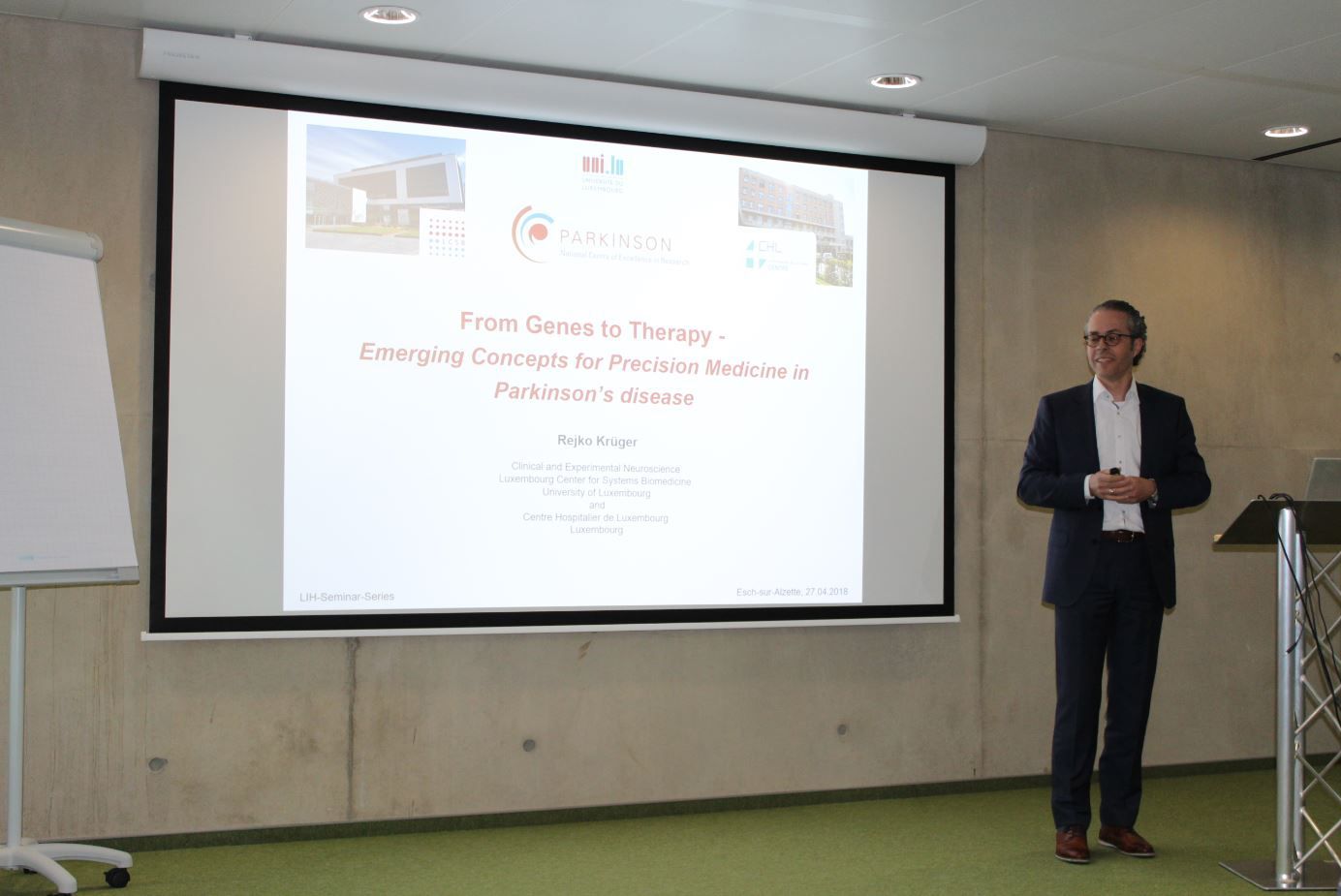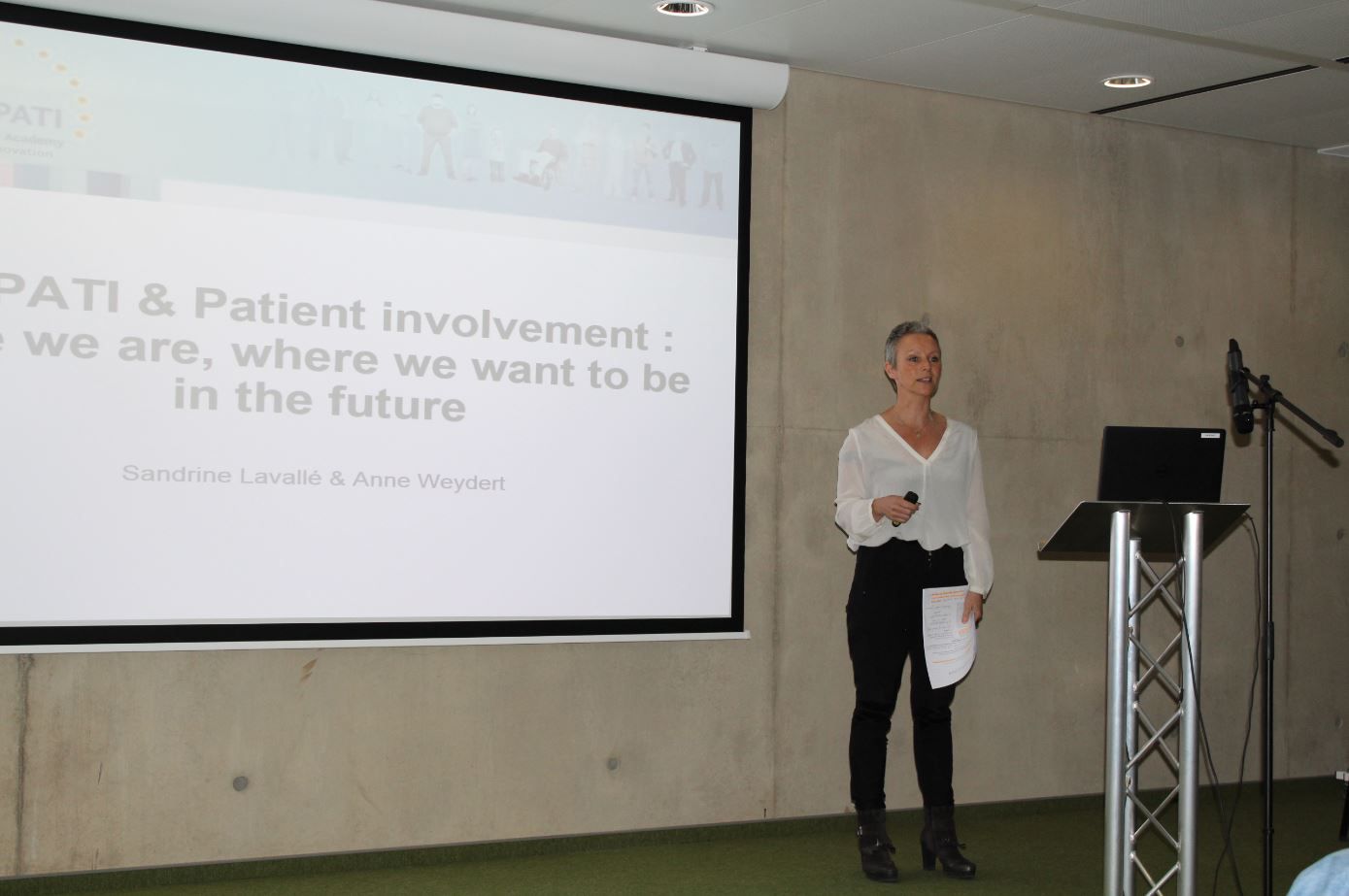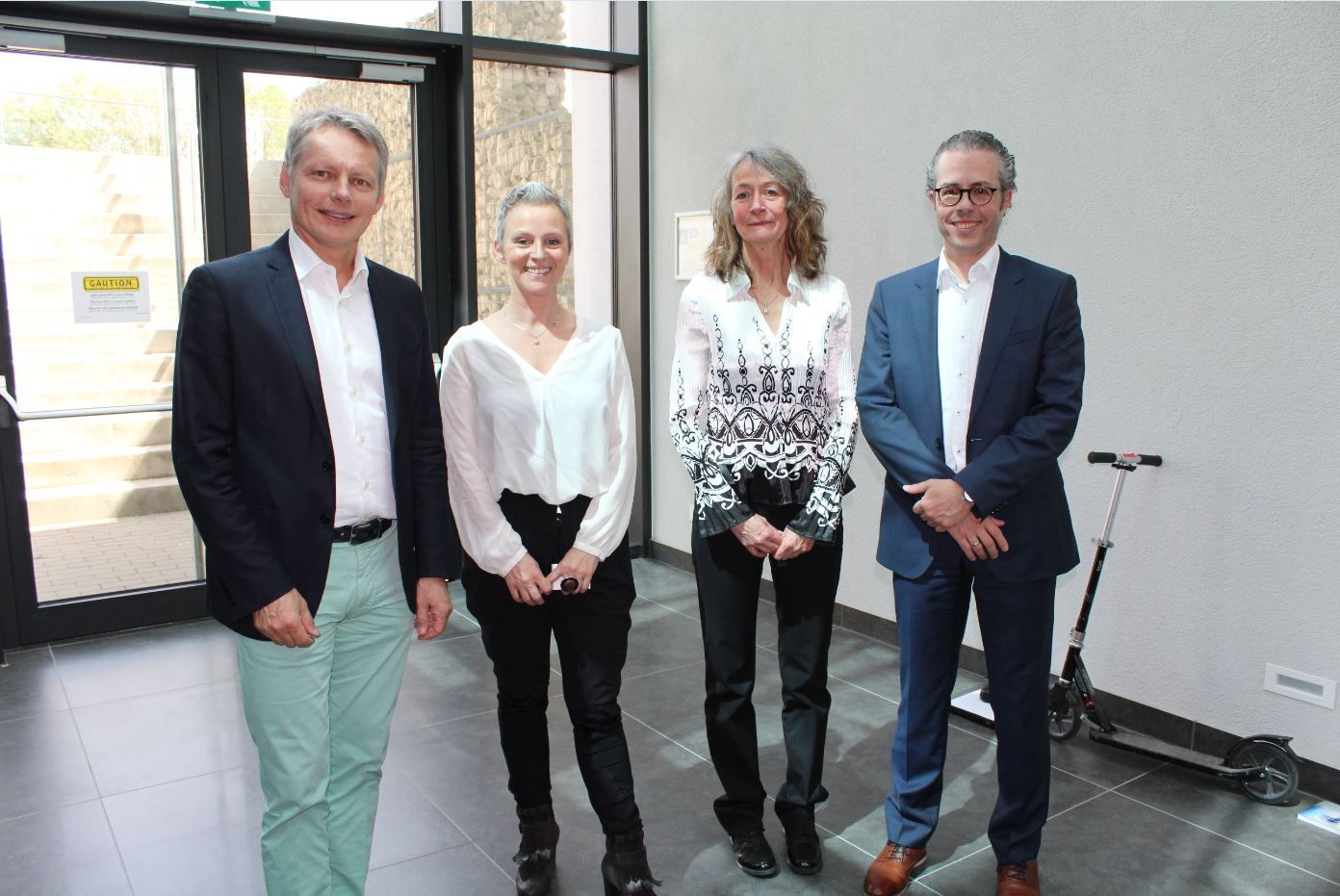Since 2017, LIH’s Research Knowledge Transfer Office is running the Lecture Series “Biomedical research – from discovery to patients”. A highpoint of this lecture series was the seminar held on 27th April 2018 on the connection between researchers, clinicians, patients associations and patients to drive innovation in research and develop personalised treatments. The session was chaired by Prof Markus Ollert, Director of the Department of Infection and Immunity, who welcomed three speakers.
In a first part, Prof Dr Rejko Krüger, Professor for Neuroscience at the University of Luxembourg, FNR PEARL Chair and member of the National Centre of Excellence in Research on Parkinson’s Disease (NCER-PD), presented the current research efforts around Parkinson’s disease in Luxembourg. NCER-PD aims for patient stratification, earlier disease diagnosis and personalised treatments. 'Personalised medicine means giving the right medication at the right dosage and at the right time to each patient', said Prof Krüger during the lecture. With some examples he showed that the knowledge on a specific gene involved in Parkinson’s disease can help for the development of an effective treatment. Furthermore, he outlined the importance of consulting patients and patient associations to allow them to contribute to the research programme with their input. He also presented ParkinsonNet Luxembourg, a recently launched network that connects the professionals involved in the treatment of Parkinson’s disease patients to foster patient-centred care.
In a second part of the seminar, Sandrine Lavallé, Scientific Collaborator at LIH’s Department of Population Health, and Anne Weydert, a patient, presented the EUPATI National Platform created in Luxembourg in 2014. EUPATI, standing for “European Patients’ Academy on Therapeutic Innovation”, is a European association that aims to promote patient empowerment by letting patients, patient organisations, advocacy leaders and the lay public become effective advisors in medical research, namely in clinical trials. The association provides extensive training material to educate patients in order to be able to enter into fruitful discussions with the research world. 'Consulting patients for research design would avoid a lot of unnecessary research that is too far from the people’s needs', stressed Mrs Lavallé.
Both speakers emphasised on the patients’ expectations for biomedical research and referred to the specific context in Luxembourg. Mrs Weydert also shared her personal experience and concerns as a patient with a neurological disease and how she benefitted from EUPATI training sessions. ‘Thanks to the EUPATI training, I am more knowledgeable about my own disease and my treatment options, and understand the principles of research and development processes. Now I want to become involved’, she stated.
The lecture series “Biomedical research – from discovery to patients” is supported by the Luxembourg National Research Fund (FNR) through the Knowledge and Innovation Transfer (KITS) funding scheme.

Prof Rejko Krüger

Sandrine Lavallé

From left to right: Prof Markus Ollert, Sandrine Lavallé, Anne Weydert and Prof Rejko Krüger
